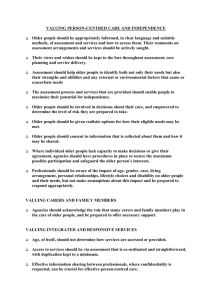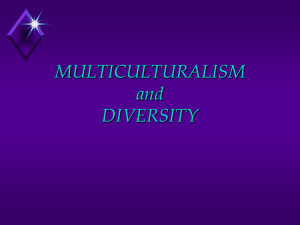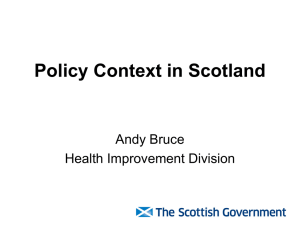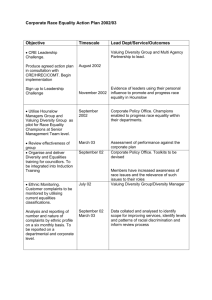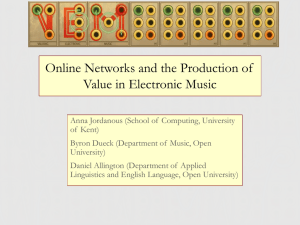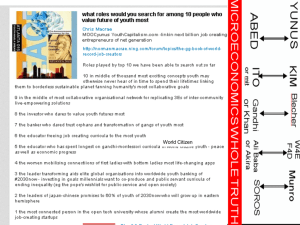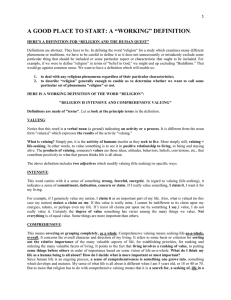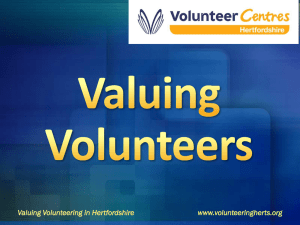Community Development Principles
advertisement
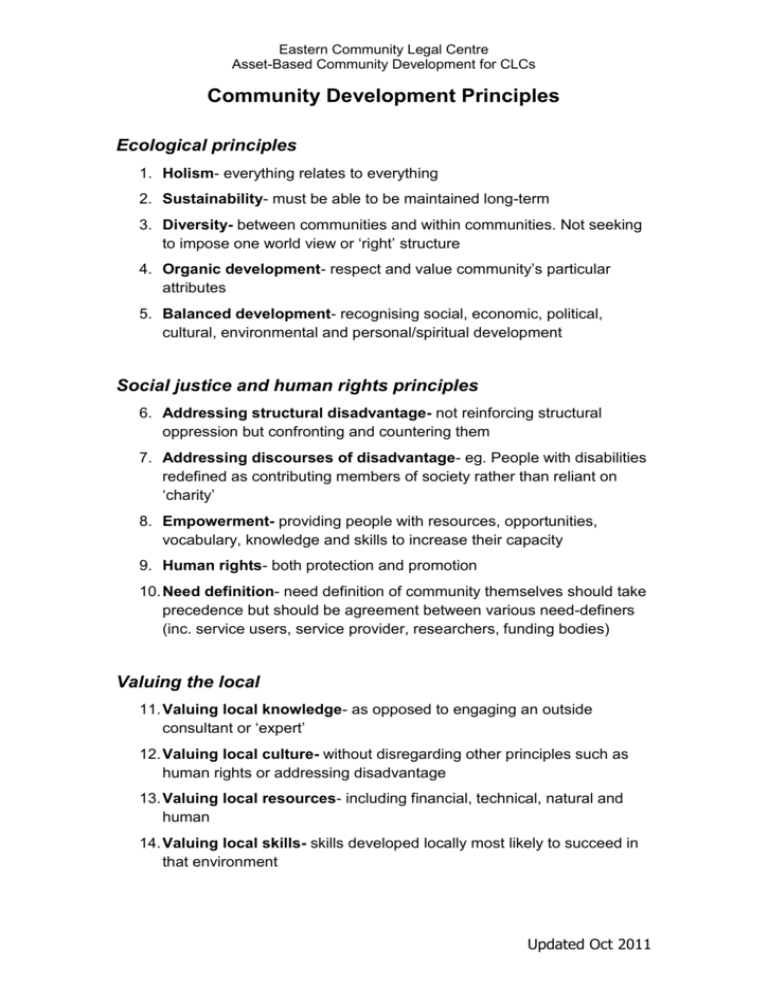
Eastern Community Legal Centre Asset-Based Community Development for CLCs Community Development Principles Ecological principles 1. Holism- everything relates to everything 2. Sustainability- must be able to be maintained long-term 3. Diversity- between communities and within communities. Not seeking to impose one world view or ‘right’ structure 4. Organic development- respect and value community’s particular attributes 5. Balanced development- recognising social, economic, political, cultural, environmental and personal/spiritual development Social justice and human rights principles 6. Addressing structural disadvantage- not reinforcing structural oppression but confronting and countering them 7. Addressing discourses of disadvantage- eg. People with disabilities redefined as contributing members of society rather than reliant on ‘charity’ 8. Empowerment- providing people with resources, opportunities, vocabulary, knowledge and skills to increase their capacity 9. Human rights- both protection and promotion 10. Need definition- need definition of community themselves should take precedence but should be agreement between various need-definers (inc. service users, service provider, researchers, funding bodies) Valuing the local 11. Valuing local knowledge- as opposed to engaging an outside consultant or ‘expert’ 12. Valuing local culture- without disregarding other principles such as human rights or addressing disadvantage 13. Valuing local resources- including financial, technical, natural and human 14. Valuing local skills- skills developed locally most likely to succeed in that environment Updated Oct 2011 Eastern Community Legal Centre Asset-Based Community Development for CLCs 15. Valuing local processes- not imposing specific answers, structures or processes from outside the community 16. Participation- provide broad range of participatory activities and legitimise equally all people involved Process principles 17. Process, outcome and vision- each is relevant and helps achieve the others 18. Integrity of process- the processes themselves should reflect all of the principles outlined 19. Consciousness-raising- helping people explore their personal experiences and the links between their experiences and the structures or discourses of power and oppression 20. Cooperation and consensus- rather than competition 21. Pace of development- community must determine the pace- cannot be ‘sped up’ for those who want to see results 22. Peace and non-violence- including addressing structural violence, physical violence (domestic, street, police, corporal punishment) by non-violent means. Eg, not appropriate to respond to youth crime with harsher penalties because it reinforces violent solutions 23. Inclusiveness- processes that include even those with opposing views so people can change positions without losing ‘face’ 24. Community building- bringing people together and emphasising interdependence Global and local principles 25. Linking global and the local 26. Anti-colonialist practice- not taking over the agenda, devaluing culture/experience or stripping people of identity From ‘Community Development: community-based alternatives in an age of globalisation’, Jim Ife and Frank Tesoriero, 2006. Updated Oct 2011
